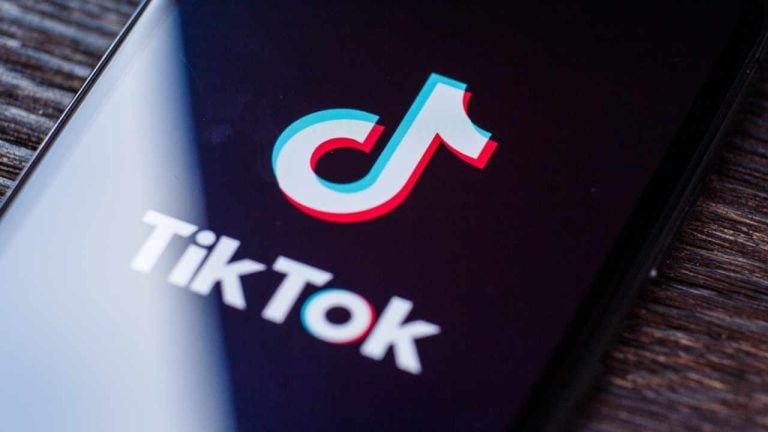 An Airbnb host, Ashley, shared her experience on Tiktok about guests who accumulated a $1,500 electricity bill by setting up an electric vehicle station and mining cryptocurrency during their three-week stay. Despite leaving the property in excellent condition, the guests’ excessive energy use, captured on external security cameras showing them bringing in 10 computers, prompted […]
An Airbnb host, Ashley, shared her experience on Tiktok about guests who accumulated a $1,500 electricity bill by setting up an electric vehicle station and mining cryptocurrency during their three-week stay. Despite leaving the property in excellent condition, the guests’ excessive energy use, captured on external security cameras showing them bringing in 10 computers, prompted […]

TikTok’s new tools include AI-powered digital avatars that brands can dub over and use to sell their products in multiple languages.
TikTok could soon be awash with ads featuring artificial intelligence-powered “digital avatars” that brands can make to say virtually anything to promote their product
TikTok announced on June 17 that it’s expanding its Symphony ad suite with “stock avatars” and an “AI dubbing” feature it claims helps brands create and localize content.
The stock avatars are “all created from video footage of real paid actors that are licensed for commercial use,” and users can choose an AI-powered “voice and accent” to read out a script which will be dubbed onto the avatar, TikTok said.

Recipients need to download a Coinbase Wallet to receive the funds, but the crypto exchange says they’ve simplified the process for less tech-savvy users.
A new feature from Coinbase Wallet allows for the transfer of crypto through a link that can be sent through some of the most popular social media sites and messaging apps as the crypto exchange looks to make its service accessible to a wider market.
“Users can now send money on any platform that they can share a link,” Coinbase said in a Dec.
There’s no payment fee when sending USD Coin (USDC), a U.S.
Send money anywhere you can send a link.
— Coinbase Wallet ️ (@CoinbaseWallet) December 5, 2023
Easily. For free.
⤷ https://t.co/CKyLu1wYEw pic.twitter.com/XX9YaZZEPm
Clicking the link will take the recipient to their device’s app store to download Coinbase Wallet — if not already downloaded — where they can create a wallet in one click, Coinbase noted.
If the funds aren’t claimed within two weeks, they will be returned to the sender.
Coinbase also made a “simple mode” for its wallet to help new and less savvy tech users which only shows basic functions like buying, sending, receiving and viewing assets.
Related: How to prepare for the next crypto bull market: 5 simple steps

Younger investors are more likely to take part in copy trading or social trading and take advice from social media influencers, according to the crypto exchange.
Generation Z crypto investors are more likely to engage in copy trading or social trading — an investment method that involves mirroring the trades of a selected other — according to a report from crypto exchange Bitget.
In an Aug. 3 report on copy trading by Bitget, the firm revealed that out of all of its copy traders, 44% of them were under 25 years of age. This was followed by 25 to 35-year-olds accounting for just under one-third.
The older generation, 35 to 55-year-olds made up of 17% of copy traders, while those over 55 made only 7% of the total.

Copy trading or social trading has been offered by exchanges in both traditional stocks and crypto. In the crypto space, it is currently offered by exchanges including eToro, Bybit and MEXC, among others.
Users can choose to use an automated tool that essentially copies positions opened and managed by a chosen individual.
Bitget suggested Gen Z's inclination to look to social media influencers for investment decisions could explain their affinity towards copy trading.
A January Forbes Advisor survey said around 80% of Gen Z and millennials took financial advice from social media. Half claimed to have made money from the advice received and YouTube, Reddit and TikTok were the most trusted platforms.
Crypto was found as the most popular investment for Gen Z in a May report from the CFA Institute and the Financial Industry Regulatory Authority (FINRA) Foundation.
44% of United States Gen Z investors started with a crypto investment compared to 35% of millennials. 43% of British and 35% of Canadian Gen Z investors also said crypto was their first investment.
Related: Crypto trader weighs in on possible Bitcoin extinction scenarios
Bitget’s report claimed most of its copy-trading users — nearly a third — were Western European but nearly half hailed from either East or Southeast Asia, its next two largest geographic segments.

Despite making up 1% of Bitget’s global copy traders 62% of African users were interested in copy trading — the highest proportion of any region.
NFT Collector: On-chain music sounds off with latest raise, artistic duo Hackatao find their lane
 Cryptocurrency and technology proponents have recently been discussing a new bipartisan bill called the “Restricting the Emergence of Security Threats that Risk Information and Communications Technology (RESTRICT)” Act. In addition to targeting firms such as Kaspersky, Huawei, and Tiktok, opponents of the bill believe one of its provisions will punish ordinary Americans for leveraging a […]
Cryptocurrency and technology proponents have recently been discussing a new bipartisan bill called the “Restricting the Emergence of Security Threats that Risk Information and Communications Technology (RESTRICT)” Act. In addition to targeting firms such as Kaspersky, Huawei, and Tiktok, opponents of the bill believe one of its provisions will punish ordinary Americans for leveraging a […]
Decentralized music streaming service Audius (AUDIO) rolled out support for the popular video-sharing app TikTok, sparking a rally for the platform’s native crypto asset. According to Audius, new users of its platform can now sign up using their TikTok profile, with the ability to import their handle and verification status to Audius after linking their […]
The post Decentralized Music Project Altcoin Jumps by More Than 20% Amid New TikTok Integration appeared first on The Daily Hodl.

With TikTok facing the prospect of removal from the United States, users should realize that traditional tech companies are far less reliable than the decentralized web.
People are often skeptical about Web3, many of them influencers and digital content creators. Notably, many of those most reluctant to embrace Web3 are very successful on Web2. Since they’ve mastered monetization on popular Web2 platforms such as TikTok, Twitch and others, why bother learning the rules of a new game?
The current regulatory debate around restricting TikTok in the U.S. provides a salient example of the risks associated with Web2 platforms, and why embracing Web3 can both benefit and protect influencers and their fans. The value add of Web3 is twofold — autonomy and insurance. Let’s hope this TikTok proposal provides a wake-up call for influencers everywhere.
There is a common misconception (not helped by the name) that Web3 is here to replace Web2. Rather than thinking about Web3 as a “new web,” it’s best to think about Web3 as a new channel. Web2 isn’t going anywhere soon, and as a creator, it’s smart to monetize as many platforms as possible. Influencers should think of it this way: If TikTok was announced today, would you reject it out of hand just because you were already successful on YouTube? Of course not. It’s the same with Web3.
Related: The future of DeFi is on TikTok
In a Web3 world, where digital content can be “tokenized” as NFTs, creators can set their own payment terms, and fans can actually own the digital item that they’re paying for, whether that be an artwork, a video, a piece of music, etc. NFTs can include royalty parameters, so creators and collectors can benefit directly from the proceeds of secondary market sales. That kind of recurring revenue stream doesn’t exist on traditional Web2 content platforms.
For successful influencers, censorship and “de-platforming” represent a major threat to their revenue, but many creators see it as an abstract risk. They argue that the removal of bad content is necessary and big tech companies can be relied upon to make sensible decisions. And anyway, good, rule-abiding creators like themselves won’t run afoul of moderation, right? They also seem to believe that platforms like Twitch, TikTok and Instagram are so successful that they’ll be around forever. Sadly, none of these arguments hold up.
In fact, popular platforms don’t stick around forever (remember MySpace and Vine?), and rule-abiding content creators get censored all the time. With so much content on their platforms, companies are forced to rely on automated solutions that frequently get things wrong, with costly consequences for creators. Healthy online communities need rules, and moderation is necessary in order to enforce them. But, if you’re a creator with an archive of valuable content, there’s a chance that your content will be lost or become unavailable to your fans.
Related: Nodes are going to dethrone tech giants — from Apple to Google
Web3 is different because it’s built on blockchains (or public ledgers) where data is added but never deleted or changed. Blockchains are decentralized by design, which means the data isn’t sitting on a server somewhere controlled by a big tech company; instead, a large network of nodes around the world maintains the accuracy of the network, making it transparent and virtually impossible to hack or corrupt.
An example of the resilience of Web3 platforms happened last year when the founder of Tezos-based NFT marketplace Hic et Nunc decided to abruptly shut down the project, leaving half a million NFTs in digital limbo. But, because Tezos is a public blockchain, and because the platform was built on Web3 open-source principles, the Hic et Nunc user community was able to relaunch it within hours, without serious disruption to sales. Imagine doing that with Instagram or TikTok.
Although a direct Web3 equivalent of TikTok doesn’t exist yet, it’s only a matter of time. And if you’re a digital content creator, there’s no need to wait. Web3 makes it possible, right now, to broaden your options for monetization and audience engagement through NFTs and other mechanisms. Creators should leverage as many platforms as possible. Web3 is what comes next — and it’s coming faster than you think.
This article is for general information purposes and is not intended to be and should not be taken as legal or investment advice. The views, thoughts, and opinions expressed here are the author’s alone and do not necessarily reflect or represent the views and opinions of Cointelegraph.
 A group of hackers have taken advantage of typing mistakes in order to introduce malware to Android phones and Windows-based PCs. Using a technique called typosquatting, which consists of registering domains that are dramatically near to the ones of official brands of organizations, hackers are getting data and private keys from unsuspected users, according to […]
A group of hackers have taken advantage of typing mistakes in order to introduce malware to Android phones and Windows-based PCs. Using a technique called typosquatting, which consists of registering domains that are dramatically near to the ones of official brands of organizations, hackers are getting data and private keys from unsuspected users, according to […]
The younger generation doesn’t have disposable income now, but they’re financially savvy thanks to short-form videos on social media
In July 2021, TikTok hit three billion downloads. The social network boasts more than one billion active monthly users. And, in the United States, TikTok is now more popular with Generation Z than Instagram.
Over the last six months, Bitcoin (BTC) has seen a drop of more than 70% from its all-time high north of $69,000 in 2021. Market volatility is to be expected. But, if decentralized finance (DeFi) is looking to have a future, it needs to be embraced by more people. The aforementioned volatility (as well as the cynicism of cryptocurrency in general) puts many investors off. Fortunately, members of Generation Z are far from your typical investors.
Finance on TikTok has become so popular that it has got its own portmanteau. Dubbed FinTok, finance-related content has seen a meteoric rise along with the social network itself. Last year, the #Crypto hashtag blew up, getting 1.9 billion videos. Uploads tagged #NFT increased by a mind-melting 93,000% (further fueled by the general boom in NFT interest). And, videos with the #StockTok hashtag garnered 1.4 billion views.
The glut of money management videos isn’t limited to the crypto market. Last year, the #PersonalFinance hashtag accrued more than 4.4 billion views, with content covering everything from tax and budgeting to savings and debt. Considered in the context of TikTok’s primary users — Generation Z — it shows that the youth of today have a healthy appetite for financial information. They just want to consume it soundtracked by a catchy pop song and a viral dance.
Related: Throw your Bored Apes in the trash
Young adults are also leading digital asset adoption. According to the "Invest in You" survey by CNBC, 18-34-year-olds accounted for 15% of cryptocurrency investments, compared to 11% for 35-64-year-olds and a measly 4% for 65+. The problem is, a considerable segment of that 18-34 year old demographic sees crypto as a short-term investment: 21% of 18-34-year-olds only regard it as a 12-month strategy.

It’s no surprise that Gen Z is not only embracing cryptocurrency but also educating themselves regarding finance. According to Credit Suisse’s global investment returns yearbook, Gen Z will earn a third less on traditional stock and bond investments than past generations.
December’s “OK Zoomer” research report from Bank of America revealed that the COVID-19 pandemic will hit Generation Z’s professional and financial future in a similar way that the Great Recession impacted Millennials. Therefore, although the majority of Generation Z don’t have a lot of money to invest in crypto right now, they could in the future, especially if they’re as financially savvy and investment-driven as the data suggests. And, that’s where the opportunity lies for DeFi.
For the future and health of the digital asset market, DeFi firms need to engage the right audiences in specific ways targeted to those demographics.
Similar to how DeFi promises to democratize finance, social media platforms such as TikTok have the potential to democratize the investing process. What was once a closed community only accessible for the likes of Wall Street bankers and qualified hedge fund managers is now open to everyone.
But, if DeFi is to capitalize on the opportunities available via the trendiest social media platform, it’s going to have to get better at marketing. This means clear and concise short-form videos that are tailored to the target audience, making crypto not just accessible but fun too, while also being transparent about the risks inherent in investing.
Related: The feds are coming for the metaverse — from Axie Infinity to Bored Apes
Short videos are playing well on TikTok. But, they’re predominantly top-of-the-funnel activities. That’s not necessarily a bad thing. Brands can warm up the Generation Z audience now so that in a few years, when they have the money to invest, they’re knowledgeable leads ready to be converted.
It’s this conversion content that’s needed. Crypto companies need to build trust in the audience over the next few years. No mean feat considering the turbulence and bad press the bear market has experienced lately.
DeFi firms must stay transparent, distinguish themselves from TradFi brands and figure out what forms of video content will build long-term, trusting relationships with the younger generation. If crypto companies learn how to speak their language today, tomorrow could be bright for bitcoin and other digital assets.
This article is for general information purposes and is not intended to be and should not be taken as legal or investment advice. The views, thoughts, and opinions expressed here are the author’s alone and do not necessarily reflect or represent the views and opinions of Cointelegraph.
 The Better Business Bureau (BBB) has warned about cryptocurrency scams on Tiktok. “You are scrolling through Tiktok when you come across a video showing a pile of cash. The creator says they earned the stack of money in just a few days by investing in cryptocurrency,” the BBB detailed. Crypto Scammers Defrauding Tiktok Users The […]
The Better Business Bureau (BBB) has warned about cryptocurrency scams on Tiktok. “You are scrolling through Tiktok when you come across a video showing a pile of cash. The creator says they earned the stack of money in just a few days by investing in cryptocurrency,” the BBB detailed. Crypto Scammers Defrauding Tiktok Users The […]